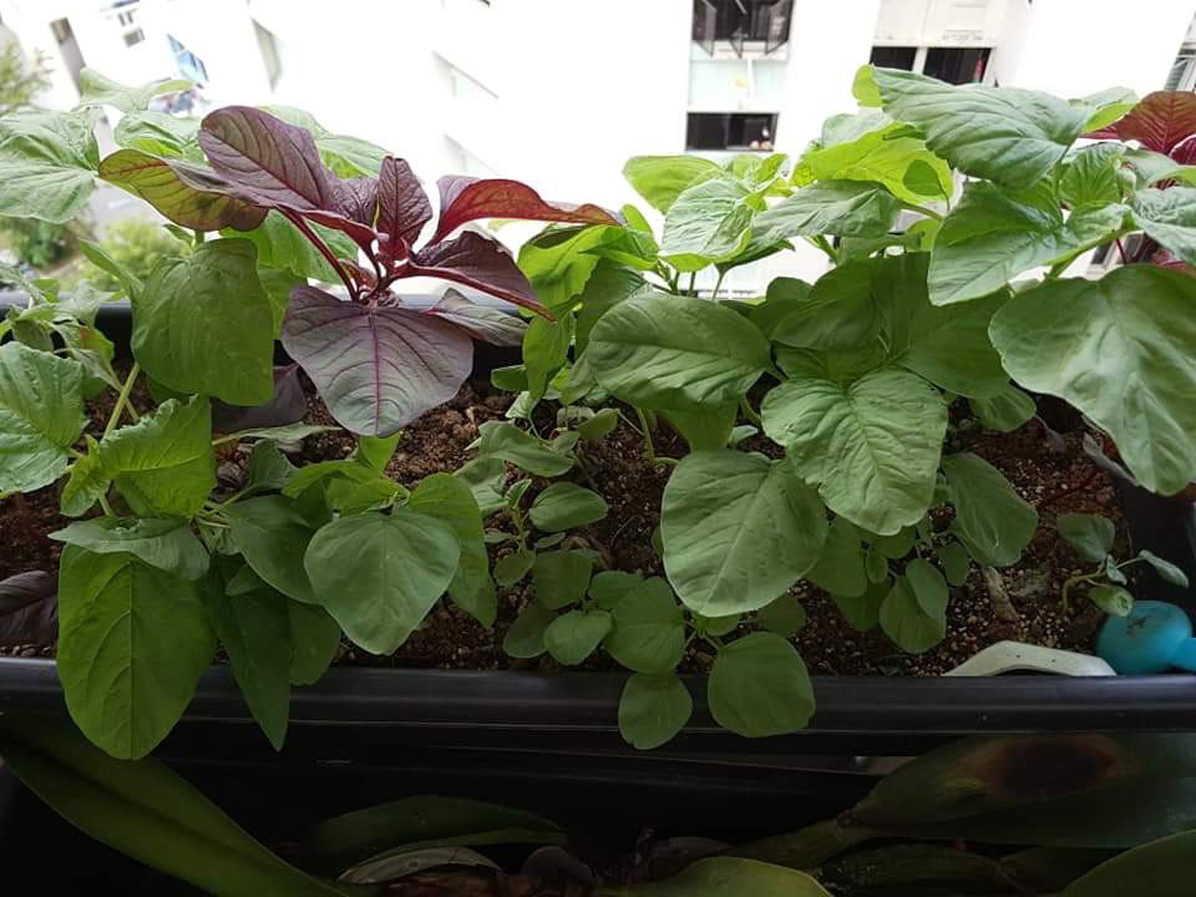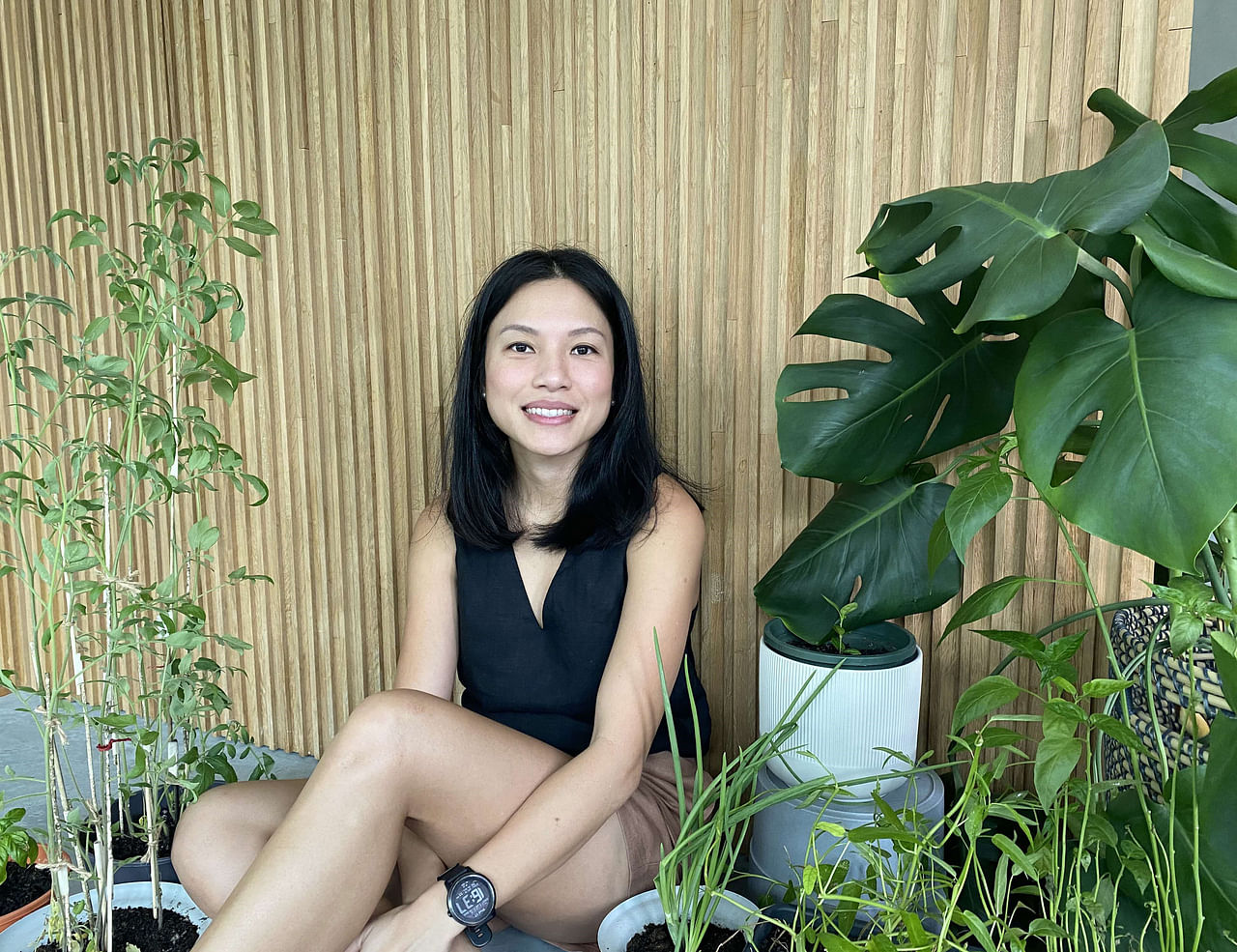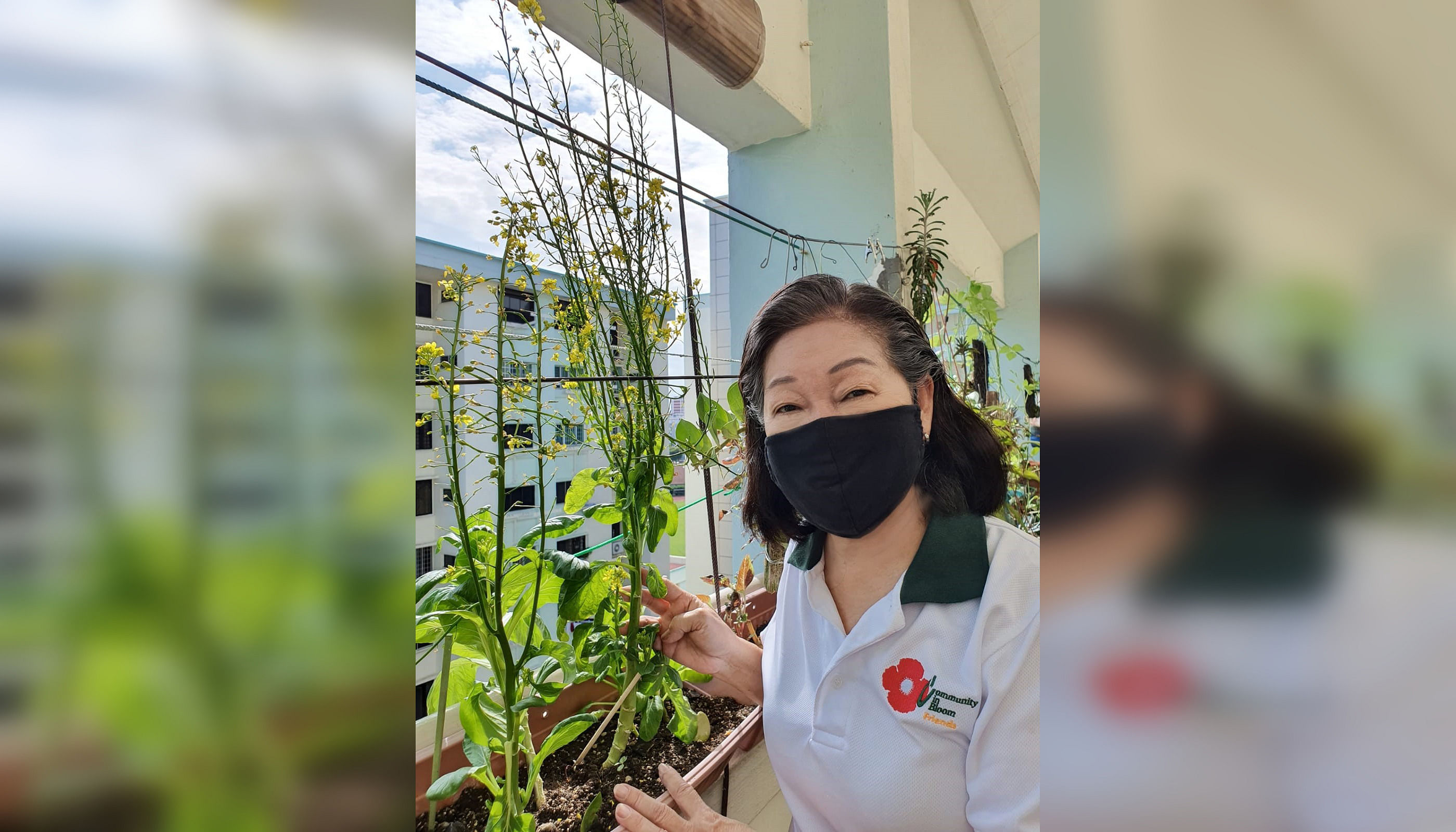NParks seeding a nation of gardeners
Sign up now: Get ST's newsletters delivered to your inbox

The Chinese Spinach is Madam Iris Ho's favourite garden vegetable.
PHOTO: IRIS HO
SINGAPORE - If the National Parks Board (NParks) has its way, there will be tomatoes and cucumbers as well as spinach and kangkong garden plots sprouting in corridors of Housing Board flats, on condominium balconies and any available space in Singapore homes.
NParks launched the Gardening with Edibles initiative as part of its City in Nature vision on Thursday to encourage people to grow their own produce at home by distributing 400,000 free packets of seeds for leafy vegetables and fruit vegetables.
People can register for the seed packets by contacting NParks or visiting its website. The initiative is supported by DBS Bank and the Tote Board.
For those who need time-saving gardening hacks, NParks has also boosted its online resources with a series of easy-to-follow videos on its NParksSG YouTube channel.
For veteran urban gardener Iris Ho, it is a welcome initiative.
"The launch of Gardening with Edibles is good news," says Madam Ho, 66, a grandmother who is also a Community in Bloom ambassador and leader of the Ang Mo Kio-Hougang community garden.
"Even my grandchildren enjoy gardening at home," she says. "And the best part is that my immediate neighbours share the same interest and we have developed a little garden along the corridor over the years, with vegetables and fruit, even melons."
The Community in Bloom initiative was launched in May 2005 to foster community spirit and bring gardening enthusiasts of all ages together.
It has since cultivated more than 1,500 community gardens across Singapore - involving more than 40,000 gardening enthusiasts such as Madam Ho.
NParks also announced on Thursday that it aims to have 3,000 community gardens and 3,000 allotment gardens by 2030.
Another avid gardener is Ms Loh Lay Kwan, vice-president for sustainable operations at DBS Bank.

csgarden20 - Lay Kwan with her tomato plant (on left) and herb pots (on right) in her balcony
PHOTO: LOH LAY KWAN
The 33-year-old is a volunteer with DBS' Zero Food Waste team and a novice gardener who grows kangkong and herbs on her apartment balcony.
"The Gardening with Edibles programme will create more opportunities for family bonding as many of us continue to work from home during the post-circuit breaker period," she says.
"I've not tried growing a wide range of vegetables before, so this will certainly be a new and exciting experience. I'm also looking forward to helping out at DBS Food Forest, which will be ready later this year and is expected to have more than 50 varieties of edible plants and herbs."
DBS Food Forest is touted to be Singapore's first community farm on the premises of a bank. It will take up 46 sq m outside the DBS Asia Hub building in Changi Business Park and will feature common varieties of edible plants and herbs.
Ms Loh shares that edible plants need more sunlight, so she has situated her plot on her balcony. "I water my plants each morning and let them have ample sunlight on my balcony and I'm glad to share that the seeds have sprouted well to form a mini 'balcony farm'."
For Madam Ho, the corridor of her Ang Mo Kio HDB flat is where her edible plants thrive.

"The plants at the corridor receive at least six hours of sunlight - from 7am to noon and a little more in the afternoon."
For plants that can grow in partial shade, Madam Ho recommends Chinese spinach (amaranth), lettuce, kale, mustard greens, spring onions, Chinese celery, bok choy and chye sim.
"Chinese spinach is my favourite as it is easy to sprout, comes in a variety of colours and also grows fast."
• For NParks' Gardening with Edibles seed packets, go to this website or call 6499-1099. To meet demand, NParks has increased the seed packets from 150,000 to 400,000 packets, after which registration will be closed. It says it will look into restocking the seed packets and reopening for registration again at a later date. In light of the rising dengue cases, gardeners are reminded to flip flowerpot plates and loosen hardened soil regularly to remove stagnant water and curb transmission.


